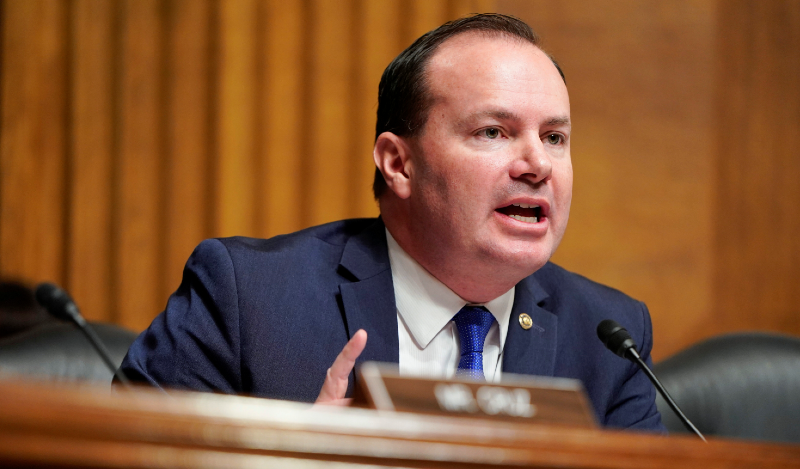SE/. Mike Lee (R-UT) has introduced legislation in the U.S. Senate that would curb the authority of the Endangered Species Act over wildlife found entirely within the borders of a single state (Image courtesy of aei.com)
WASHINGTON, D.C. – Utah’s Sen. Mike Lee and three influential Capitol Hill Republicans have introduced legislation to protect endangered species – from management by federal officials.
“The Native Species Protection Act is a common sense reform,” Lee explained, “that would limit the damage caused by federal mismanagement of protected species and their habitats, while empowering state and local officials to pursue sensible conservation plans with their own communities.”
Lee’s proposal would curb the authority of the Endangered Species Act of 1973 by mandating that non-commercial species found entirely within the boundaries of a single state would not be subject to that regulation or “any other provision of law enacted as an exercise of the power of Congress to regulate interstate commerce.”
While acknowledging that there are “real benefits” to protecting endangered species from extinction, Lee believes that the federal Endangered Species Act is badly in need of reform.
That view is shared by the co-sponsors of his proposed Native Species Protection Act. They are Senators Rand Paul (R-KY), Jim Inhofe (R-OK) and Ted Cruz (R-TX).
The Endangered Species Act (ESA) replaced previously ineffective wildlife conservation efforts in 1973. At the suggestion of former President Richard M. Nixon, the legislation was intended to protect critically imperiled species from extinction as a “consequence of economic growth and development untempered by adequate concern and conservation.”
The goal of the ESA is to prevent extinction and to recover species to the point where the law’s protections are no longer needed by protecting selected wildlife and the ecosystems upon which they depend.
The ESA is administered by two federal agencies: the U.S. Fish and Wildlife Service and the National Marine Fisheries Service.
Since its enactment, the ESA has been controversial. Critics of the law maintain that the protections afforded to listed species curtail economic activity. But environmentalists argue that concern is exaggerated, since the law’s protections apply only to federal activities.
Despite several Supreme Court rulings upholding the ESA, lawmakers like Lee continue to argue that the ESA has been weaponized, particularly against western states, preventing the utilization of vast tracts of their land.
Lee introduced a proposal similar to his Native Species Protection Act in the Senate during September of 2017.
“In the nearly fifty years since it was signed into law,” Lee said in 2017, “the ESA has done more to impede economic activity, obstruct local conservation efforts and give federal bureaucrats regulatory control over private property, than it has done to protect endangered species.”
Former Sen. Orrin Hatch (R-UT) co-sponsored Lee’s previous effort to curb the ESA.
“Time and again, we have witnessed federal mismanagement of numerous species, especially in my home state of Utah,” Lee argued. “In my view, state officials—not Beltway bureaucrats—are best equipped to manage animal populations in a responsible manner, especially those populations that fall exclusively within their borders.”

